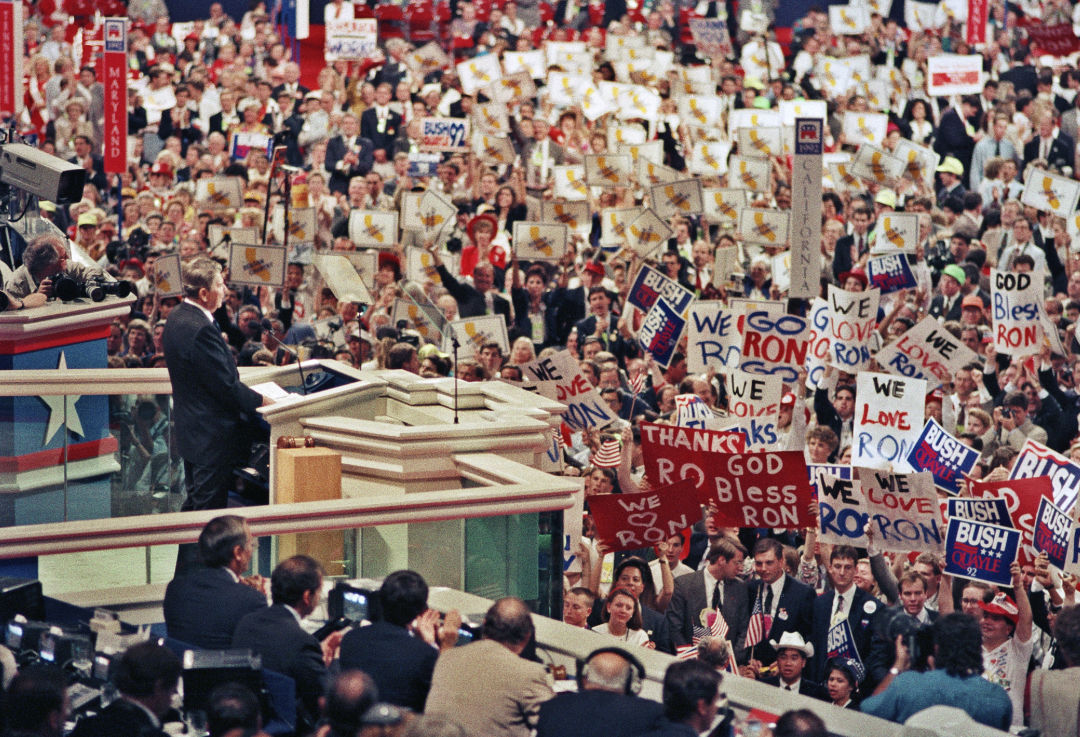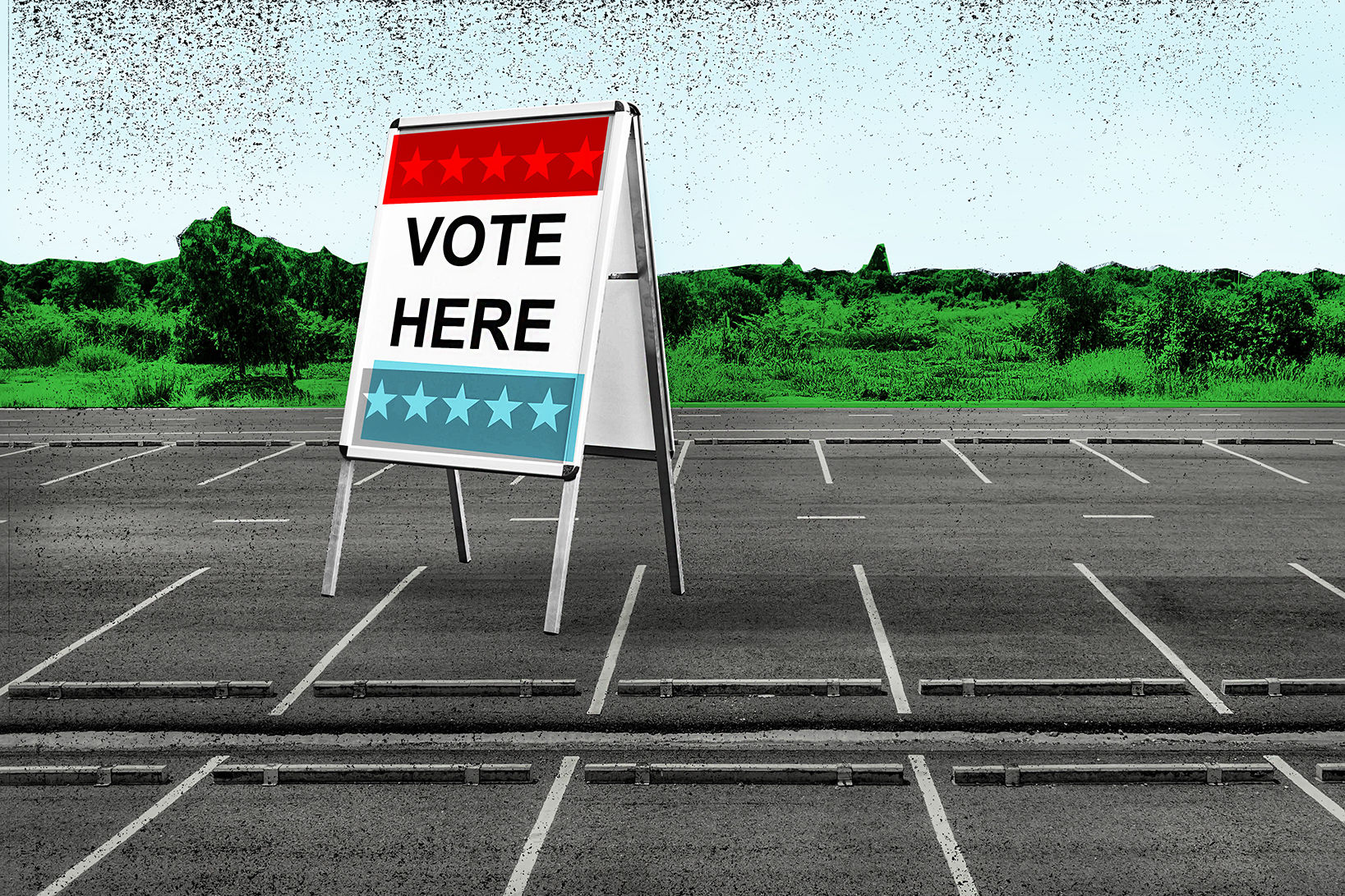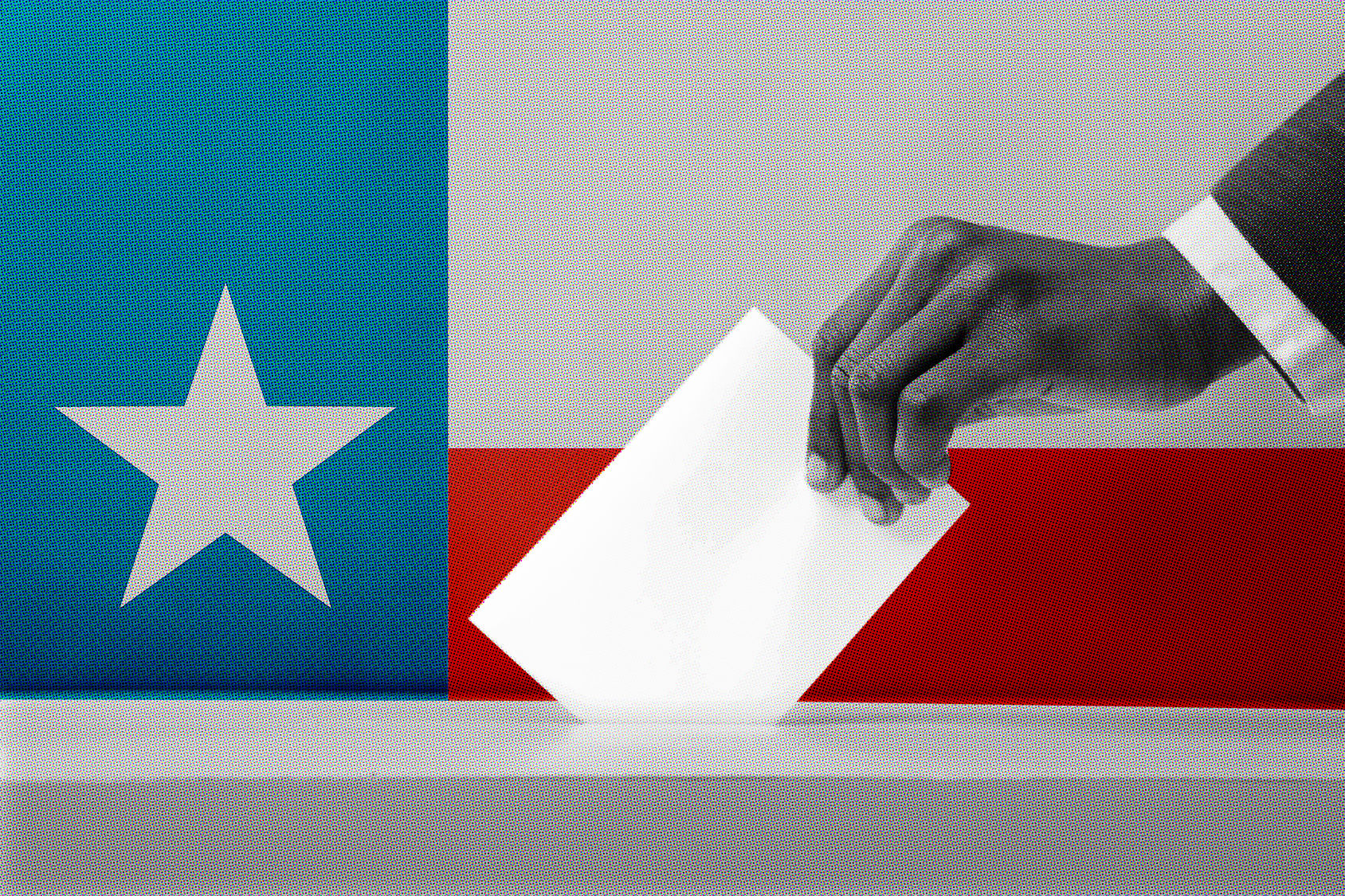A Look Back at Houston’s Convention History from 1928 to 1992

President George H.W. Bush and his family were a feature of the Republican National Convention at the Houston Astrodome in 1992.
Image: AP Photo/Ron Edmonds
For the third time in history, Houston will host a party convention, this time serving as the venue for the Republican National Convention (RNC), where the political body will select its nominee for the 2028 presidential race. The event will be a crucial gathering of Republican leaders, delegates, and supporters, shaping the future of the party’s platform and strategy as candidates prepare to face off against their Democratic rivals in the 2028 election.
Houston last played host to the RNC in 1992. Held at the Astrodome, the event led to the nomination of the incumbent, George H. W. Bush, as the party’s pick for the presidential bid, who ultimately lost to Bill Clinton. Before this, the Democratic National Committee (DNC) held its convention at Sam Houston Hall in 1928. Alfred “Al” Smith, then in his fourth term as the governor of New York, became that year’s Democratic nominee for president. Although the 2028 event will be the RNC’s second appearance in Houston, it’s actually the third time the party is having its convention in Texas, as Dallas hosted in 1984.
Here’s a look at past national conventions in Houston and their outcomes.
Democratic National Committee, 1928

The 1928 Democratic National Convention in Houston marked the first time a Roman Catholic candidate was nominated for US president by a major political party.
Image: Courtesy Library of Congress
At the time, the choice to have the DNC in Houston was a very surprising decision, according to the Heritage Society at Sam Houston Park. Beating out San Francisco, Detroit, and Cleveland, the city of Houston lacked the proper infrastructure for an event of that size and required the swift construction of the 20,000-seat Sam Houston Hall in only 64 days to serve as the convention venue. (It would be demolished less than a decade later.)
Held from June 26 to June 29, the convention was dominated by discussions of Prohibition enforcement and issues facing American farmers. Smith emerged as the clear frontrunner for the presidential nomination, with limited competition from other candidates. Despite some concerns about how conservative voters would react to his anti-Prohibition views, Smith’s nomination was ultimately accepted, making him the first Roman Catholic to be nominated for the US Presidency by a major political party. However, Smith’s Prohibition stance and his Catholicism contributed to divisions within the Democratic Party, ultimately leading to Republican Herbert Hoover’s victory in the 1928 presidential election, with even traditionally Democratic Texas voting Republican. This election marked a turning point in Texas’s political landscape and foreshadowed a decline in support for the Democratic Party in the state.
Republican National Convention, 1992

Former President Ronald Reagan addresses the Republican National Convention at the Houston Astrodome on August 17, 1992.
Image: AP Photo/NewsBase
Catapulting the nation into a new era of political polarization and identity politics for the coming decades, the RNC’s 1992 convention signaled a seismic shift in American politics. The event also played a pivotal role in reshaping the Republican Party’s identity and its approach to elections. Former White House communications director Pat Buchanan’s fiery speech, which warned of a cultural war for the soul of America, rallied conservatives and further solidified the party’s commitment to social and cultural conservatism. This emphasis would have far-reaching consequences, as subsequent Republican campaigns continue to lean into divisive cultural debates to energize their base.
The country’s struggling economy received minimal attention during the convention. Instead, the focus was on reinforcing Reagan-era values and sitting President George H. W. Bush’s international credentials. Ronald Reagan’s address, the former president’s last major political speech, emphasized hope, confidence, and love of country. HIV-positive activist Mary Fisher delivered a powerful speech advocating for the party to address the AIDS crisis head-on, and with compassion. The convention also highlighted the importance of the media in shaping political narratives by showcasing the growing influence of conservative talk radio and cable television in promoting a blend of entertainment and politics.




